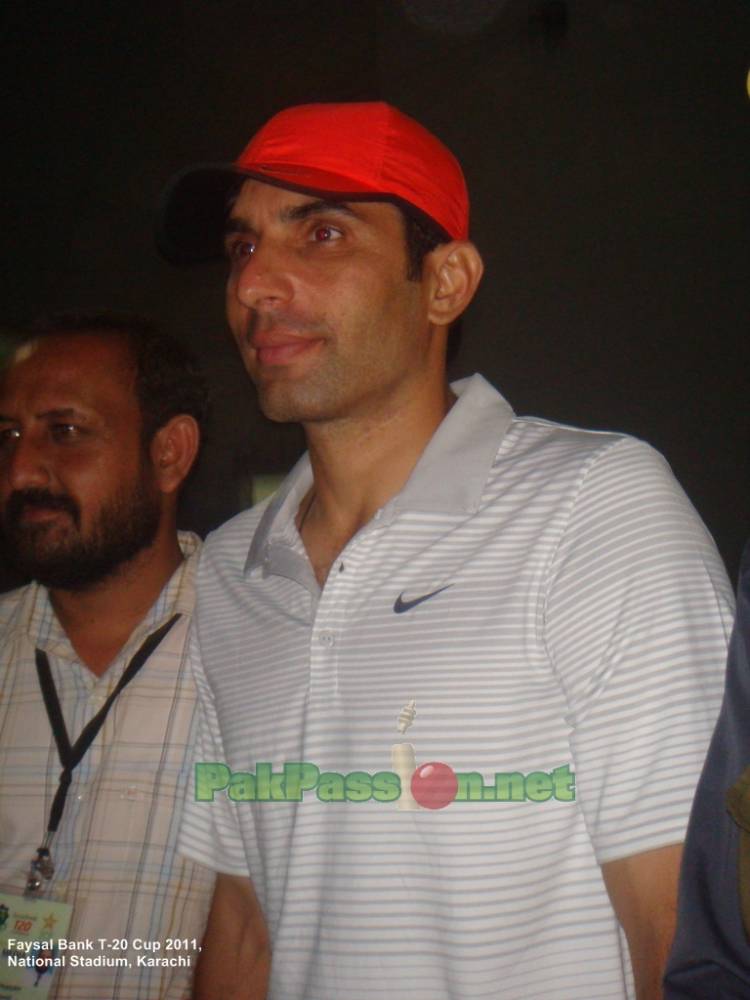In this week's piece, we analyse Misbah-Ul-Haq's batting approach during the first ODI against the West Indies after he moved himself up the order.

by Nasser Khan (16th July 2013)
Misbah has finally decided it would best serve the interests of the team to bat four in the on-going series against the West Indies, an admission that his stubborn insistence on batting one position lower was a mistake. It confirmed what most of us knew already of course, that despite invariably being the top scorer for Pakistan from his lower-middle order berth, he wasn’t likely to win the side any matches.
The most fascinating passage of play when Pakistan were batting in the first ODI on Sunday was the dynamic of the Misbah-Akmal partnership. With the young batsman middling the ball and keeping the scoreboard ticking, Misbah was faced with a situation well outside of his comfort zone – that of having to form a partnership which would set a winning target, rather than grafting to an ultimately-inconsequential top score. How did the captain respond? By batting more slowly than ever before. We’ve seen this all before of course, a go-slow putting his partners under such pressure they perish trying to get the team to 200 without needing an extraordinary - and in recent times unlikely – cameo. Umar Akmal was the only specialist batsman to middle the ball with ease, a skill that should be respected, nurtured, and rewarded with a batting position further up the order should the think-tank show some mettle.
Batting slowly is the ultimate exercise in self-preservation, in ODIs more than any other format. Scoring so slowly that your fellow batsmen will end up getting out to reckless shorts will inevitably result in the anchor ending with the highest score, even if it’s a stagnant 52 from 20 overs including a refusal to take a risk even at the end of the innings. Consider a situation where the Afridi blitz never happened, which is most matches Pakistan have played in the last three years, and it’ll be another graft in a losing cause. It’s a safe place for a 40 year-old captain to be, but a dangerous precedent for a team competing on the world stage.
The opposing argument will be that without Misbah’s stabilising influence Pakistan would have collapsed in a heap, that he was the enabler who liberated Afridi. However, that is the very argument that has continuously served to undermine the Pakistani batting. The players need to be free to express themselves and play their natural game, not be stung into a hidebound, defensive paralysis the safety-first approach will inevitably cause. If the captain doesn’t believe in his team, the players certainly won’t be able to, especially given the fluid team selection policy. Misbah’s go-to line, that of “personal responsibility,” only applies if the players are given the right backing - otherwise they are just a collection of individuals who are expected to face the opposition alone.
The solution is not a complicated one, only requiring the two captains to show some selfless leadership, an unlikely scenario given it is in both of their interests to inflate their importance to the batting line-up. Hafeez has to drop down the order if the Pakistani batting is to succeed. It’s clear the spinner will never accept he isn’t good enough to bat up the order, despite almost a decade of travails against the new ball. Hard to blame him for this blinded selfish arrogance, given it’s taken so many years for Misbah to accept batting five was too low. The question is, how long will it take Misbah to work out he needs to bat three?










